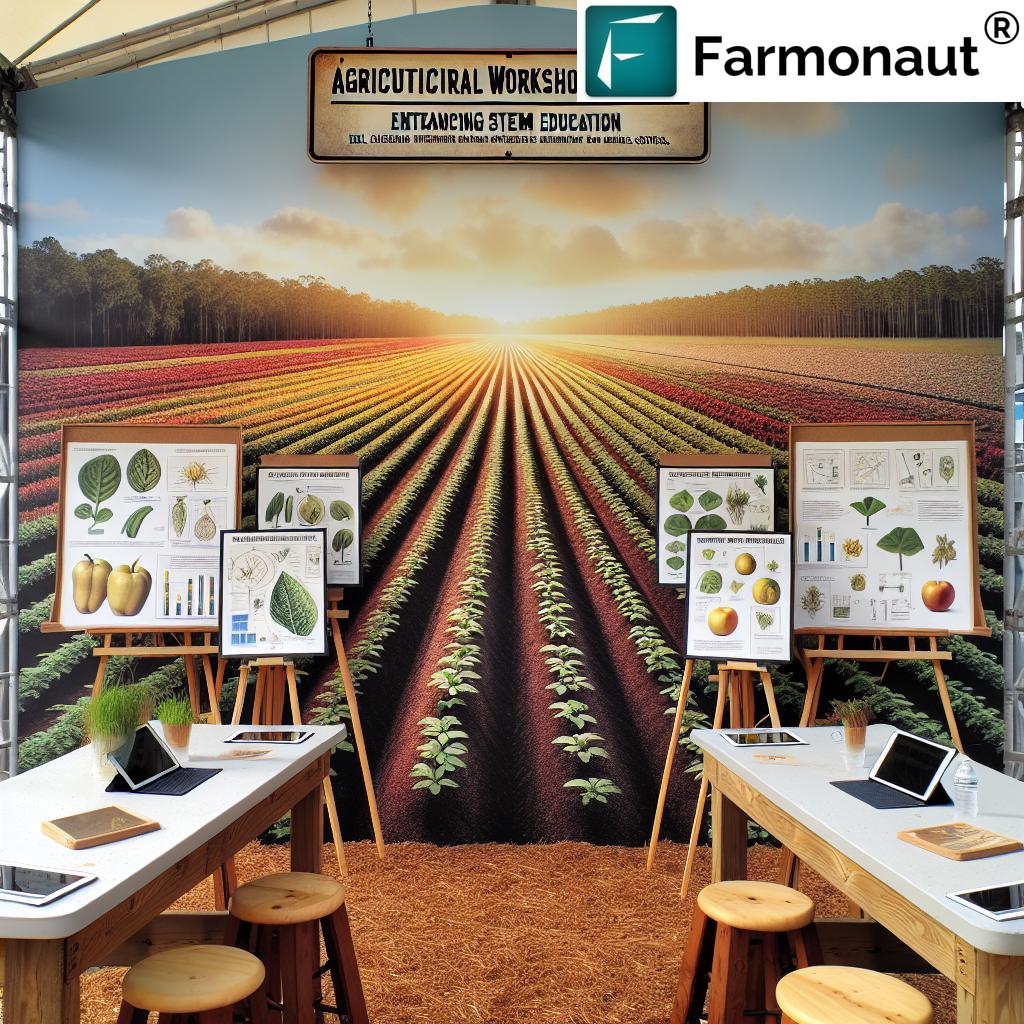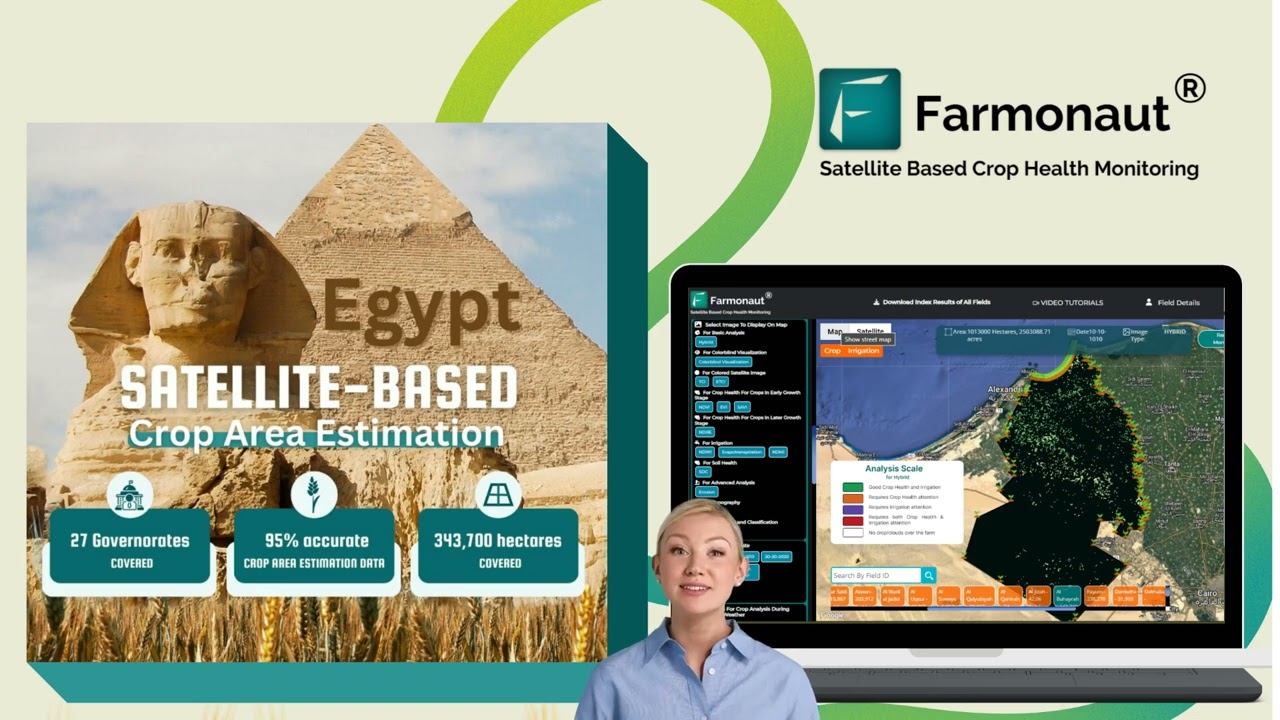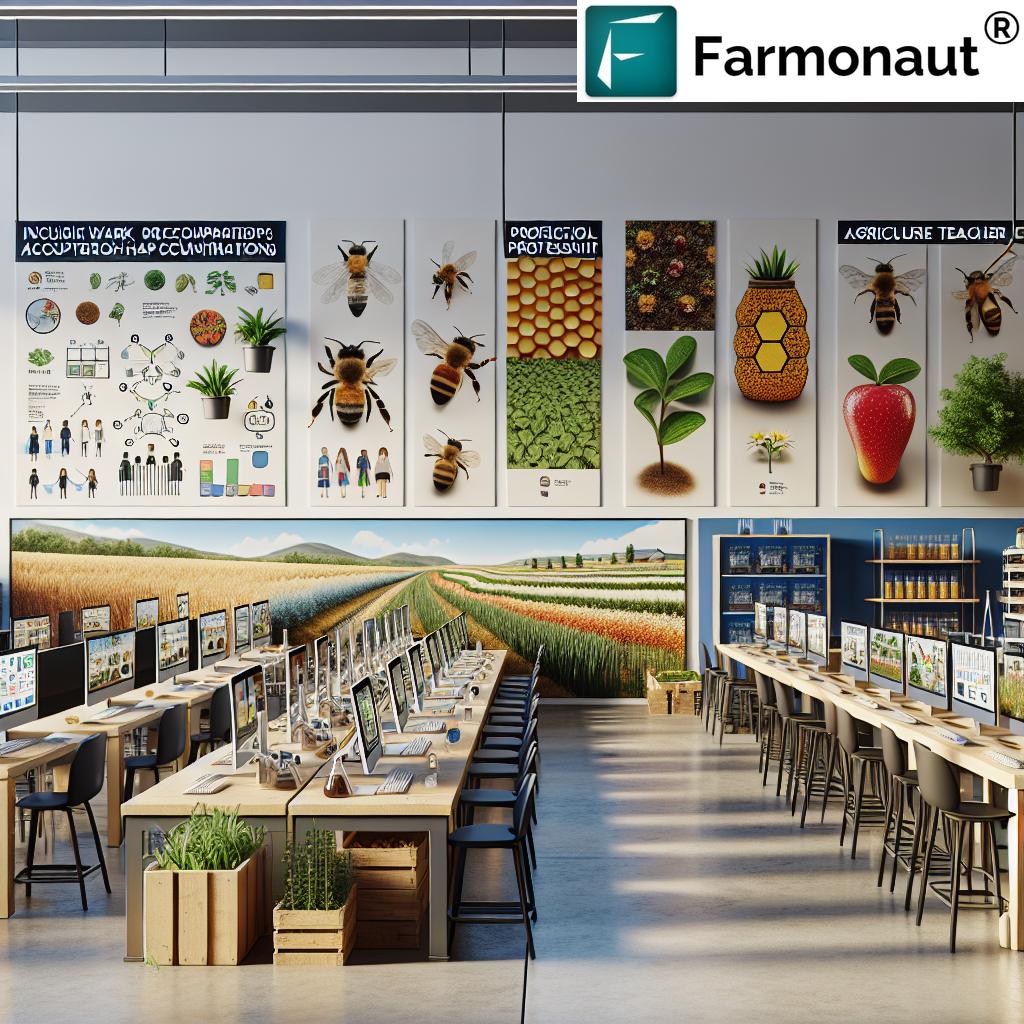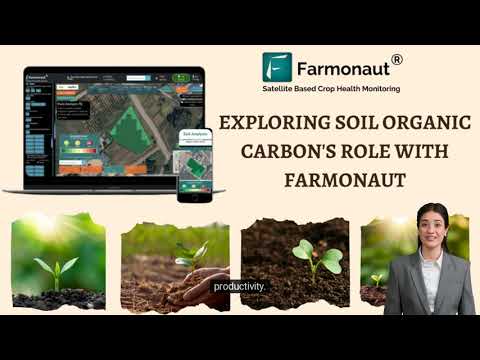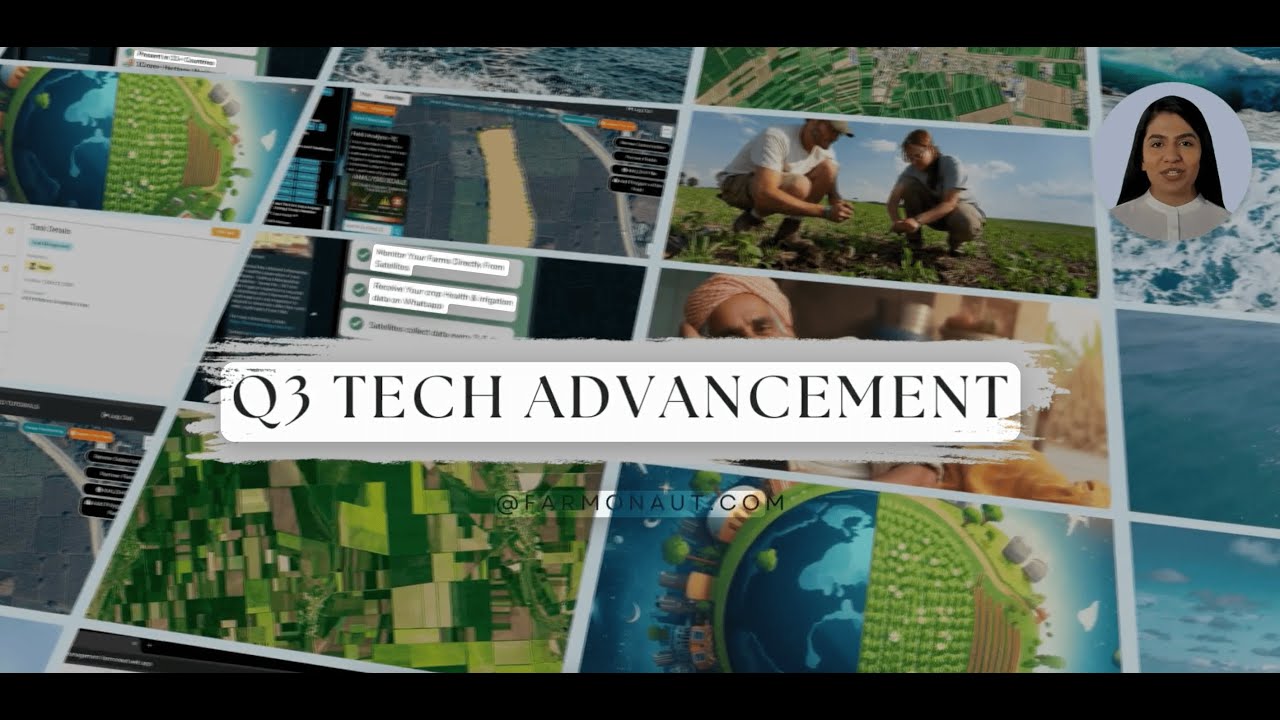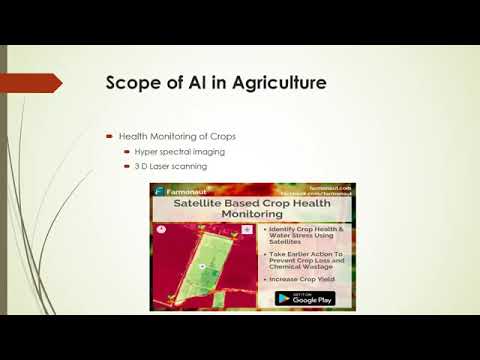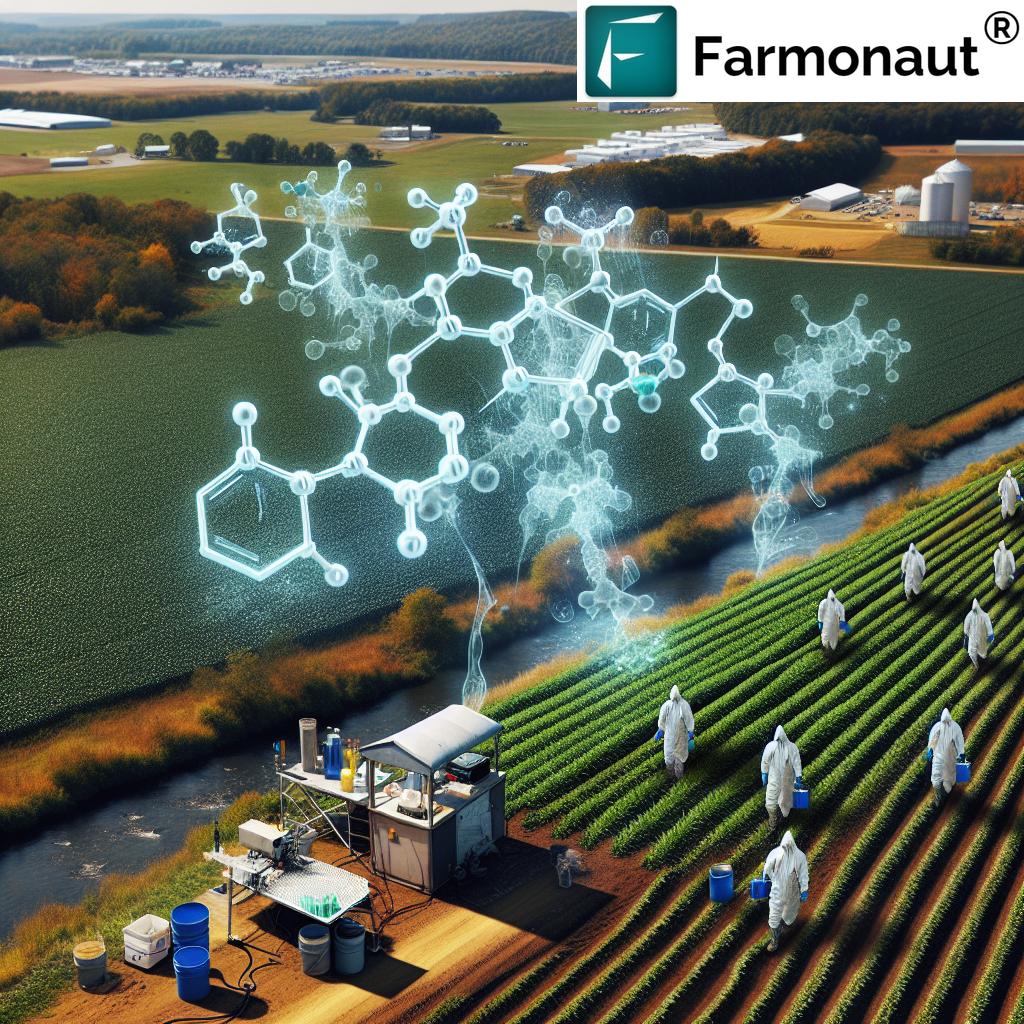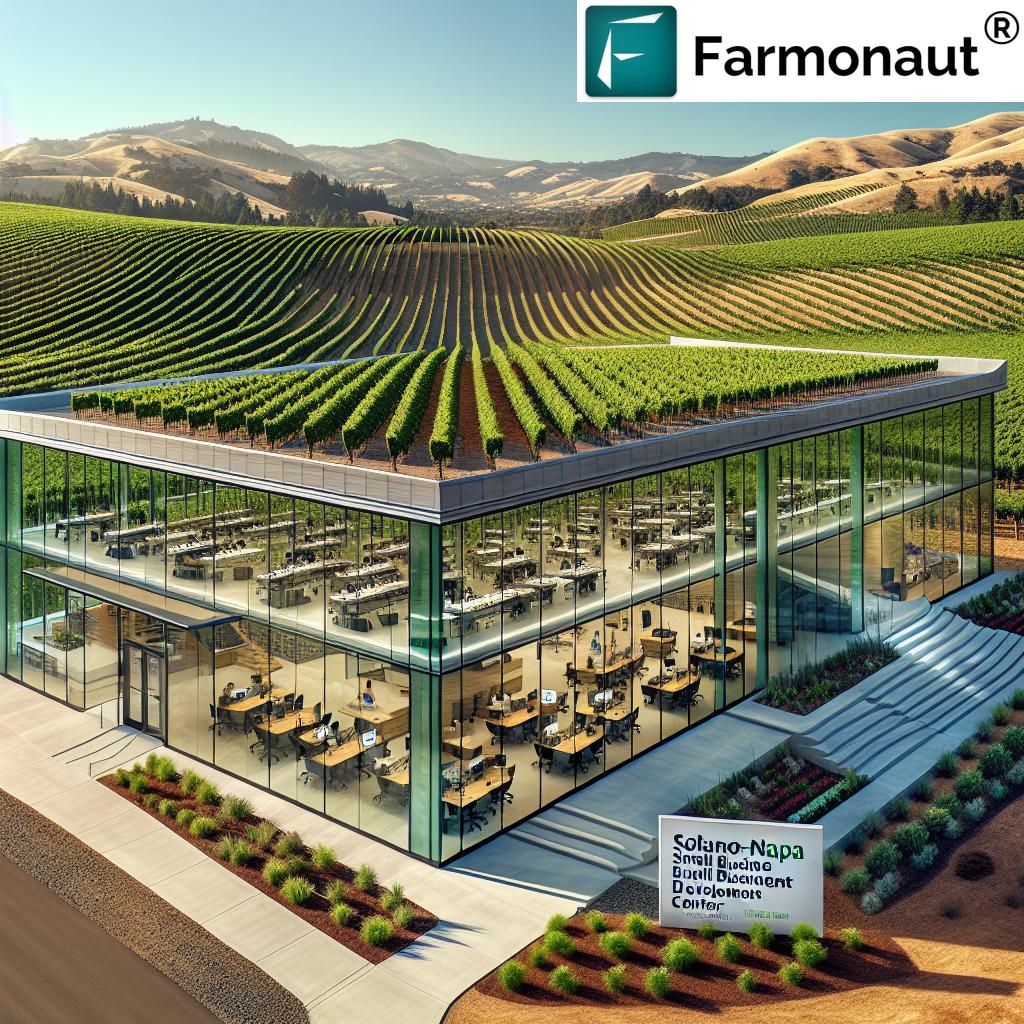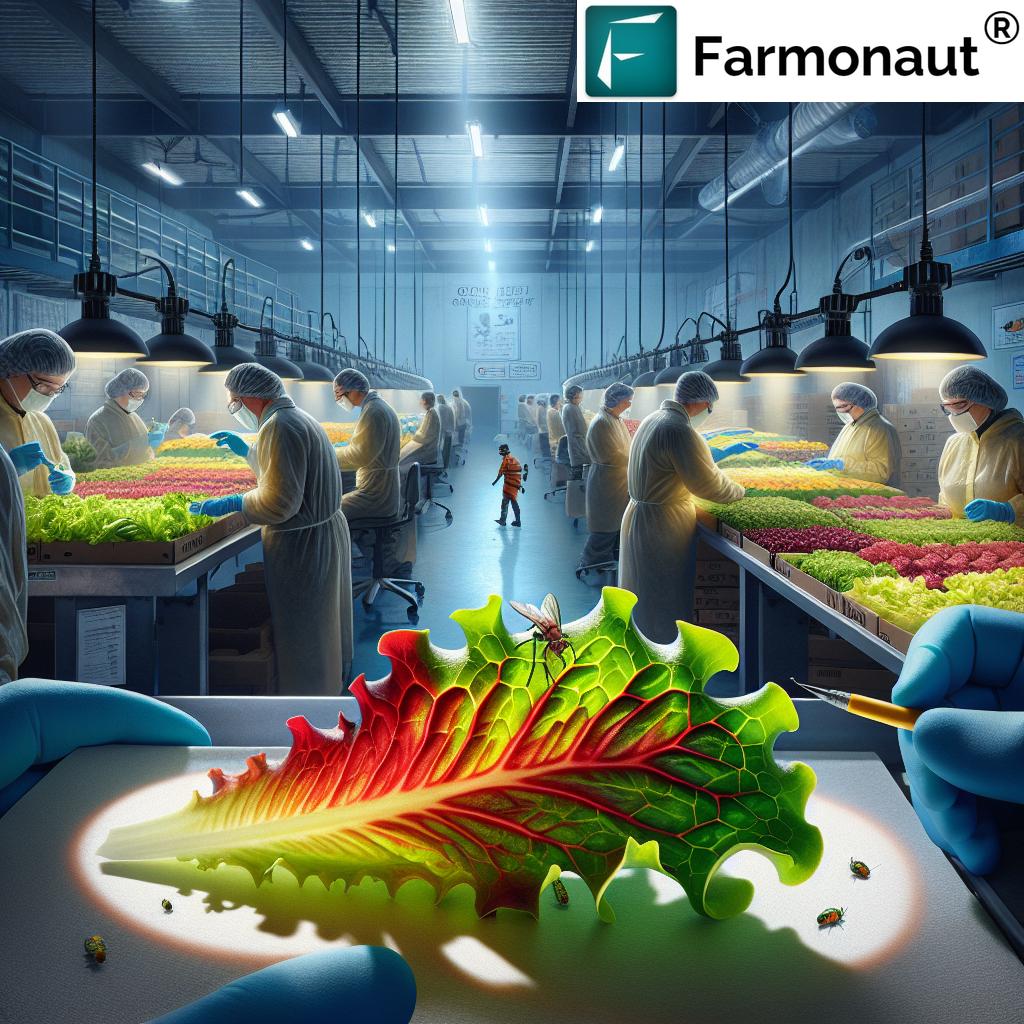Agricultural Workshops Florida: 5 Powerful Ways to Boost STEM Teaching
- Why Agricultural Workshops Matter for STEM Education
- Inside Agricultural Workshops Florida: A Transformative Learning Series
- Agricultural Workshop Comparison Table
- Improving Plant Genes for Better Crops and Science Classrooms
- Engineering Technology: Florida’s “Smart Farm” Future
- Helping Honeybees Thrive: Connecting Ecology to STEM Lessons
- Authentic Science Classroom Lessons: Bringing Research Into the Curriculum
- Inclusive Workshop Accommodations & Participation Support
- Farmonaut: Connecting Technology and Research with Agriculture Education
- Bonus Resources and Workshop Links
- Frequently Asked Questions
As educators and agriculture professionals, we understand that contemporary agricultural workshops Florida are reshaping how secondary teachers, rural schools, and communities approach STEM. By integrating agriculture, technology, engineering, and local field-based research, these workshops deliver practical, authentic science classroom lessons and make improving plant genes and food production exciting topics for students.
In this in-depth guide, let’s explore the top five ways our agricultural workshops Florida series are revolutionizing STEM education for rural schools, directly supporting teachers, and helping translate complex agricultural research – like plant genetics and smart farming – into accessible lessons for every learner.
Why Agricultural Workshops Matter for STEM Education
Florida is a national leader in agriculture and the drive to improve STEM (Science, Technology, Engineering, Math) education. With thousands of schools across rural and northern regions, agricultural workshops connect teaching teams with real-world, contemporary agricultural science and technology. These events go beyond textbooks – blending classroom instruction with field-based adventures, lab research, and collaborative lesson redesign for deeper, meaningful learning.
- Improve plant and crop genetics through hands-on experiences
- Bring advanced technology and engineering into rural school contexts
- Support inclusive teaching for all learners – regardless of their backgrounds or abilities
- Create a bridge between authentic agricultural research and STEM curriculum
- Foster food science literacy and inspire future agri-tech innovators
Our agricultural workshops Florida provide transformative professional development for agriculture teachers, science coordinators, and CTE educators – ensuring classroom methods are rooted in the latest, most dynamic research from the field and farm.
Inside Agricultural Workshops Florida: A Transformative Learning Series
The University of Florida Institute for Food and Agricultural Sciences (UF/IFAS) organizes the Cultivating STEM Curiosity (CSC) Workshop Series to empower secondary and middle school educators. Anchored in North Florida and supported by USDA NIFA, this series targets rural classroom teachers and those working with non-U.S. majority populations in regions like Alachua County, NEFEC, and PAEC, plus rural Georgia and Alabama.
- Total Education Hours: 26
- Primary Focus: Re-working science and agriculture lessons for contemporary, local, and authentic learning connections
- Format: Hybrid (In-person and virtual sessions)
- Stipends: $500 available per teacher, distributed upon attending sessions and lesson implementation
- Inclusivity: Strong commitment to accommodation for disabilities, childcare, or other needs – making the workshops accessible to every educator
- Certification and Networking: Completion certificates and future opportunities for teacher-led PD presentations
Each agriculture workshop Florida instance is tailored to a vital aspect of contemporary food and agricultural sciences:
- Engineering Technology for the Future “Smart Farm”
Live Oak, FL – June 27-28 - Helping Honeybees Thrive
Gainesville, FL – July 15-16 - Improving Genes for Better Plants and Crops
Marianna, FL / UF/IFAS North Florida Research and Education Center – July 28-29
Meet the Workshop Leadership Team
- Dr. Katie Stofer – UF Agricultural Education and Communication (352-273-3690)
- Dr. Heather Kent – UF/IFAS 4-H
For support with accommodation requests, registration details, or accessibility needs, contact Dr. Stofer. We are committed to inclusive workshop accommodations for everyone.
Main registration and session information can be requested using a brief online form (no supervisor approval needed, but advance permission encouraged for scheduling).
For help with registration, reach Lauren Keiser at lkeiser [at] ufl [dot] edu.
Agricultural Workshop Comparison Table
Let’s compare the unique agriculture teacher professional development sessions available in Florida. This table summarizes how each event targets STEM education and rural school needs.
| Workshop Name | STEM Education Focus | Target Audience | Estimated Duration | Location | Workshop Date(s) | Estimated Participant Impact |
|---|---|---|---|---|---|---|
| Engineering Technology for the Future “Smart Farm” | Integrating technology & engineering in agriculture, smart farm prototypes | Rural STEM and Agriculture teachers (9-12), CTE educators | 2 days (12pm Fri – 5pm Sat) | Live Oak, FL | June 27-28 | ~40 teachers, impacting ~2,500 students |
| Helping Honeybees Thrive | Pollination biology, environmental science, bee health, real-world classroom connections | Rural STEM, Agri, and science teachers (9-12); space for middle school | 2 days (12pm Tues – 5pm Wed) | Gainesville, FL | July 15-16 | ~35 teachers, impacting ~2,100 students |
| Improving Genes for Better Plants and Crops | Plant genetics, contemporary agricultural research, science lesson design | Rural, North Florida, NEFEC and PAEC science/STEM teachers (9-12) | 2 days (Noon Mon – 5pm Tues plus later virtual sessions) | Marianna, FL (UF/IFAS NFREC) | July 28-29 | ~38 teachers, impacting ~2,300 students |
1. Improving Plant Genes for Better Crops and Science Classrooms
The Improving Genes for Better Plants and Crops workshop, based at UF/IFAS North Florida Research and Education Center (Marianna, FL), stands out for its focus on the future of food, crops, and sustainable agriculture. Through in-depth exploration of plant genetics, educators join in real-time research fields, taking contemporary genetic engineering and breeding techniques directly back to the classroom.
- Learn from top research scientists active in north florida crop research and global studies
- Observe demonstration fields, genetic trials, and lab protocols for contemporary crop improvement
- Participate in collaborative lesson redesign to make plant genes accessible for high school learners
- Experience the process of genetic variability – from DNA isolation to field phenotyping
As we rethink our classroom instruction, teachers will develop lesson plans around:
- Authentic science classroom lessons using real-world plant data
- Case studies in local food science and north florida crop research
- Bringing contemporary molecular techniques and plant breeding practices to school labs
The goal: Make the advanced science of improving plant genes relatable, relevant, and inspiring for STEM education for rural schools.
Session Format: Two full days in Marianna – blending live research field experiences with group lesson design, followed by virtual STEM learning sessions with UF researchers.
2. Engineering Technology: Florida’s “Smart Farm” Future
The Engineering Technology for the Future “Smart Farm” workshop takes place in Live Oak, Florida, placing technology and engineering at the center of agricultural education. Participants explore how sensors, remote control, and data analytics are reshaping fields and food systems.
- Work hands-on with prototypes for monitoring soil, crops, moisture, and machinery
- Design student experiments using technology in agriculture education, such as weather stations or smart irrigation controls
- Learn how to evaluate engineering efficiencies that impact both yields and sustainability
Our session includes collaborative breakout groups, working with UF engineering and agricultural science experts, all while connecting the latest research to practical, affordable school labs.
Why is this important? Because today’s smart farms depend on interdisciplinary STEM skills – and our students must be prepared to innovate in this technology-rich future.
3. Helping Honeybees Thrive: Connecting Ecology to STEM Lessons
The Helping Honeybees Thrive workshop, hosted in Gainesville, Florida, brings together leading voices in pollinator science and agricultural research. In this session, teachers learn to adapt lessons for honeybee biology, environmental science, and the essential links between pollinator health, crop production, and classroom engagement.
- Explore honeybee colonies in the field with UF entomologists
- Discover up-to-date research on environmental threats and best practices for protection
- Build authentic science classroom lessons around honeybee biology and pollinator food webs
- Connect classroom theory with fieldwork for maximum student learning
These lessons support both science standards and contemporary agriculture learning, demonstrating to students how North Florida’s crops, food systems, and environmental health all depend on thriving pollinators.
4. Authentic Science Classroom Lessons: Bringing Research Into the Curriculum
In all workshop instances, educators are challenged to re-design existing lessons so that learning is:
- Authentic, rooted in current agricultural fields research and local context
- Inclusive, supporting all learners through universal accommodations and differentiated instruction
- Contemporary, leveraging state-of-the-art science and technology, such as Farmonaut’s satellite monitoring and blockchain-based traceability (see Farmonaut’s traceability platform)
Participants leave the workshops with:
- Collaboratively improved STEM and Ag lessons, ready to pilot in their own classrooms
- Follow-up support and access to expert networks from the University of Florida
- Opportunities for further recognition and sharing, including regional science teacher conferences (e.g., FAST in October)
We are driving education forward by ensuring every student in rural north Florida gains genuine exposure to current agricultural innovations – preparing them for careers in food, science, engineering, and technology.
Developer? Integrate satellite data in your agri-edtech app with the Farmonaut API or use our API developer docs.
5. Inclusive Workshop Accommodations & Participation Support
Accessibility is one of our core values. Our agricultural workshops Florida take place in working research fields, which may require special accommodations. We strongly encourage teachers and participants to reach out for support with:
- Physical accessibility challenges (fields, labs, transportation on-site)
- Childcare needs to allow for full participation
- Any other needs that will help you make the most of the workshop experience
Contact Dr. Katie Stofer (352-273-3690) ahead of time. We are committed to inclusive workshop accommodations so every rural school teacher, regardless of circumstances, can benefit from these sessions.
How Farmonaut Bridges Technology, Research & STEM Education for Rural Schools
Today’s agriculture teacher professional development stands on the shoulders of cutting-edge agri-tech innovators. Farmonaut – a leading agricultural technology company – offers teachers and researchers affordable access to high-level data, transforming how we bring digital learning and contemporary science into the classroom.
- Satellite-based crop health monitoring:
- Every teacher can explore crop phenology, NDVI, and soil moisture with affordable, real-time mapping
- School lessons can reference actual imagery from Florida farms for projects and research
- AI-driven personalized farm advice:
- Jeevn AI system gives daily, field-specific recommendations—perfect for demonstrating real-time data in science and agriculture curriculum
- Blockchain-based product traceability:
- Resource & fleet management tools:
- Carbon footprint tracking:
- Flexible Subscriptions:
- Farmonaut’s SaaS model ensures even small rural schools and agri-teams can access these resources affordably. See pricing below.
By bridging the gap between STEM and contemporary agriculture, Farmonaut’s solutions:
- Make authentic science classroom lessons a reality for all students
- Encourage students to pursue careers in fields such as agri-engineering, plant breeding, or digital agriculture
- Connect rural schools to the global food and technology ecosystem
Bonus Resources and Workshop Links
- Carbon Footprinting: Explore how schools and educators can measure, track, and reduce agriculture’s impact on the environment – perfect for environmental science and STEM projects
- Product Traceability: Teach high schoolers about blockchain, food provenance, and agri-supply chain trust
- Fleet Management: Introduce the logistics and resource management behind running large North Florida farm operations
- Crop Loan and Insurance: Give students firsthand exposure to financial technology solutions that support rural agriculture
- Large Scale Farm Management: Deep dive into holistic farm management for advanced secondary projects or CTE modules
- Farmonaut Web, Android & iOS App: Experience digital farming platforms for live lessons
- Farmonaut API – Seamlessly integrate satellite data in your school EdTech or farm research projects
- Farmonaut API Docs for step-by-step guidance
Frequently Asked Questions (FAQs): Agricultural Workshops Florida & STEM Education
Who can participate in these agricultural workshops in Florida?
We prioritize secondary (9-12) STEM, science, CTE, and agriculture educators working in rural Florida (including North Florida, Alachua County, NEFEC, and PAEC regions), as well as rural Georgia and Alabama. Middle school educators may join if space allows.
How do these workshops support inclusive education and accessibility?
We provide inclusive workshop accommodations to ensure access for educators with disabilities or specific needs (such as childcare). Sessions take place in active research fields – so please request accommodations in advance. Contact Dr. Katie Stofer at (352) 273-3690.
What are the stipends and certification offered?
Stipends of up to $500 (disbursed across in-person, virtual, and lesson implementation phases) are awarded per teacher. Teachers receive a completion certification and may be invited to present their redesigned lessons at regional professional development events.
What does the “virtual STEM learning sessions” format look like?
After the in-person portion, teachers participate in online sessions – collaborating with UF experts and fellow educators to continue lesson design, receive feedback, and dig deeper into contemporary agri-science topics.
How does Farmonaut support contemporary agricultural education?
Farmonaut provides educators and schools with affordable, real-time satellite crop health data, AI-driven advice, blockchain traceability, and resource management tools. This gives teachers the tools to deliver authentic, contemporary STEM lessons grounded in real Florida agriculture. Try Farmonaut’s Web App.
How can teachers sign up for the workshops?
Complete the brief online application (name, learners, courses). No documentation required, but please coordinate with administration to ensure support for attending. For registration issues, contact Lauren Keiser at lkeiser [at] ufl [dot] edu.
Conclusion: Shaping the Future of STEM and Agriculture in Rural Florida
As rural schools face new challenges in science, technology, and food production, agricultural workshops Florida equip educators with the skills, confidence, and resources to inspire tomorrow’s innovators. By embracing inclusive accommodations, contemporary research, and authentic lesson redesign, together we can ensure every student, from the panhandle to the peninsula, benefits from high-impact agricultural science.
Keep your classroom at the cutting edge—bring real-world genetics, engineering, and agricultural technology to your students with the University of Florida’s CSC Workshop Series and Farmonaut’s affordable, accessible agri-tech platform.
If you want your lessons to reflect the latest science, technology, and food innovation—and you teach in the fields, schools, and communities of rural North Florida—these workshops are your launchpad for a smarter, more sustainable, and more inclusive STEM education future.


